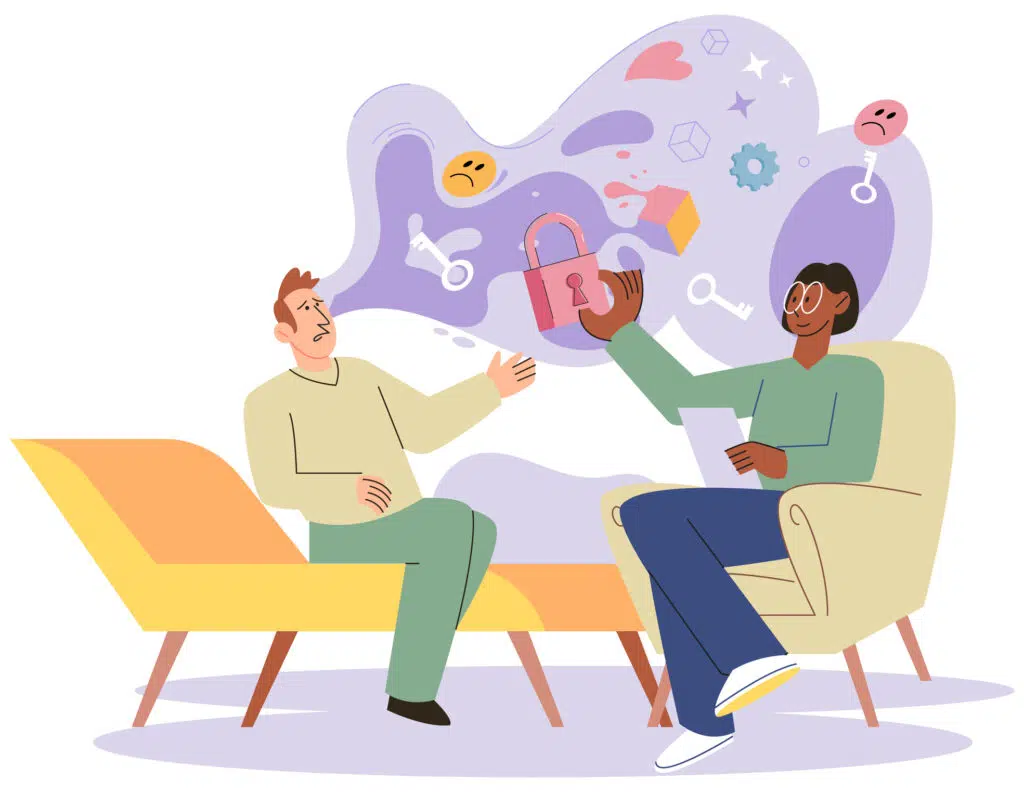Will I Always Have ADHD?

Attention-deficit hyperactivity disorder (ADHD) is a behavioral condition that often develops in childhood, but it can also affect someone as an adult. In fact, about 2.5% of adults in the United States live with this condition. And while some people seemingly grow out of some of their ADHD symptoms, the condition is usually something that needs to be managed for life.
At Thriving Center of Psychology, our specialists in mental health offer comprehensive services to help patients manage their ADHD symptoms, so they can live happy, fulfilling lives. In this blog, our experts explain what ADHD is, what you can expect from living with it, and how you can keep your condition well-controlled.
An overview of ADHD
ADHD is a behavioral disorder that disrupts attention and focus. While the root cause of this disorder isn’t well understood, you might be at an increased risk of having ADHD if there’s a history of the condition in your family, if you experience a brain injury, or if you were exposed to lead or other toxins in the environment when you were young.
In children, ADHD can cause a variety of symptoms, such as the following:
- Restlessness
- Excessive talking
- Impulsive behaviors
- Difficulties concentrating
As kids with ADHD enter their teenage years, they might engage in reckless behaviors that can affect their self-esteem and put them at an increased risk for injury.
ADHD can cause disciplinary issues at home and socially, and the disorder can also interfere with a child’s academic performance and success in school.
ADHD in adulthood
In adults, the symptoms of ADHD might become less severe, but they generally don’t go away completely. You might have better control of your restlessness, although your ADHD symptoms may present in different ways, such as:
- Disorganization
- Procrastination
- Inability to focus
- Impulsive decision-making
These behaviors may make it difficult for you to keep up with the responsibilities of being an adult and could jeopardize your job, your relationships, and your overall quality of life.
Tips for managing ADHD symptoms as an adult
Our team at Thriving Center of Psychology offers comprehensive treatment strategies to help patients effectively manage ADHD symptoms. We work with you one-on-one to evaluate the nature and severity of your symptoms and design a plan to meet your needs.
We offer on-site electroencephalographic (EEG) neurofeedback training, a state-of-the-art diagnostic tool that evaluates your brainwave activity to determine the best course of treatment for your ADHD symptoms. With this information, we can guide you on regulating your brain patterns to reduce your need for ADHD medications.
Other therapies that can be combined with EEG neurofeedback training to help you better manage your ADHD symptoms include:
- Psychotherapy (talk therapy)
- Group therapy
- Cognitive behavioral therapy
- Stress-management techniques
Our team can also help you make changes to your lifestyle to improve your time management and organizational skills. We can work with you on scheduling techniques and teach you how to break down bigger tasks into smaller ones that are more manageable.
With our comprehensive treatment strategies, you can learn how to thrive at every stage of life despite having ADHD. Our mental health specialists are available for in-office consultations and through online video teletherapy.
If you’re struggling to manage symptoms of ADHD, we can help. To learn more, book an appointment online or over the phone with Thriving Center of Psychology today.

What Are Practical Strategies for Managing Depression?
The number of U.S. adults who have been diagnosed with depression is on the rise, with young adults and women experiencing the most significant increases. We know that the effects of depression can ripple through every aspect of your life.

What Are The Benefits Of Cognitive Behavioral Therapy?
Cognitive behavioral therapy goes beyond managing the symptoms but can help address the root cause of several mental health conditions. Backed by extensive research, CBT is an evidence-based approach that is shown to be effective across various populations.

Understanding Anxiety Disorders: Causes and Coping Strategies
Anxiety disorders are the world’s most common mental disorders, affecting millions of people. While many of us experience occasional anxiety, individuals with an anxiety disorder feel excessive and intense fear and worry that can affect their daily lives.

A Guide To Managing Depression During Pregnancy For Expectant Mothers
Almost one in five women experience a mental health condition during pregnancy or in the first year after birth, with 9% of women meeting the criteria for major depression. The pregnancy experience is unique. While some people seemingly fly through pregnancy, others can face significant mental health challenges.

